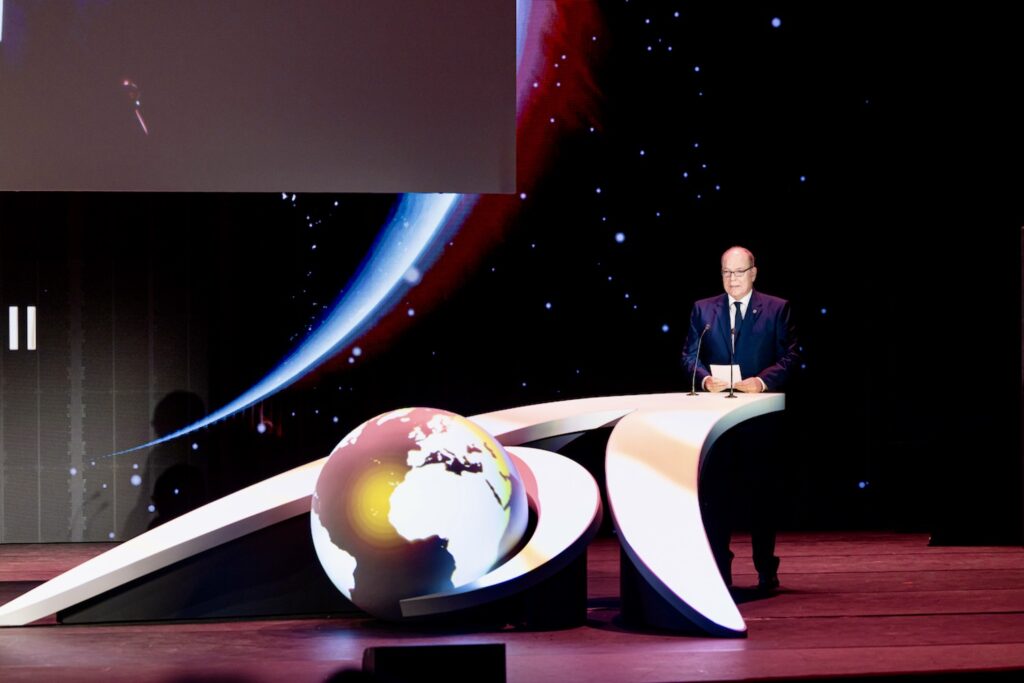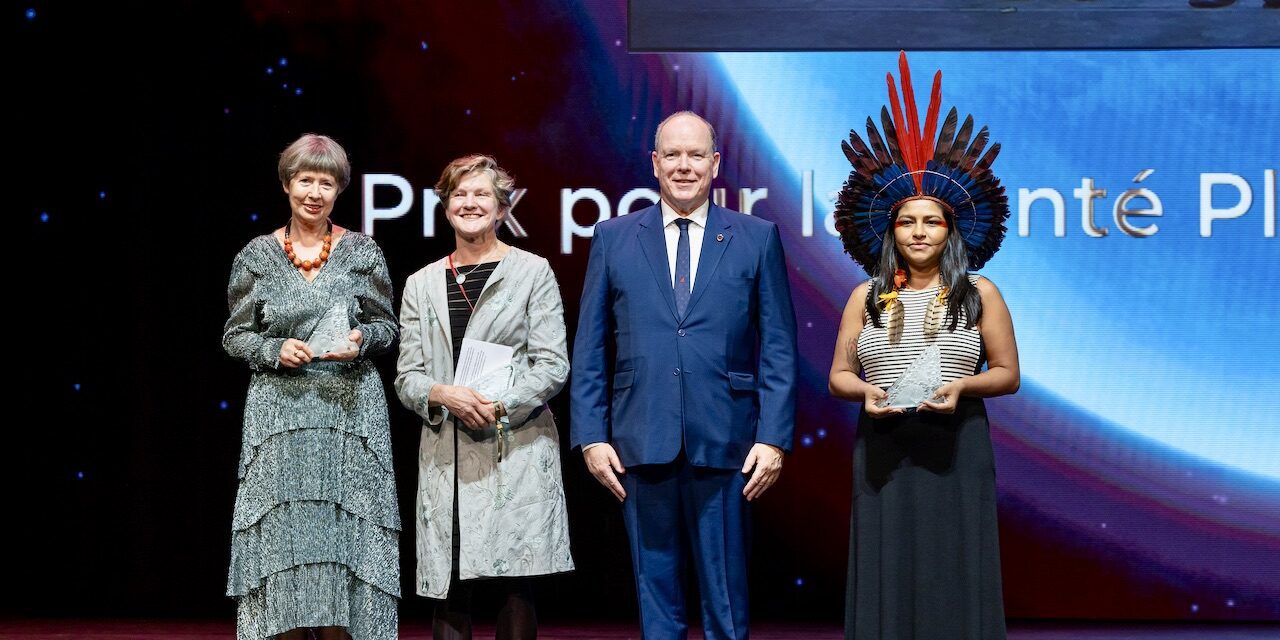The Prince Albert II of Monaco Foundation held its 17th annual Awards Ceremony for Planetary Health at the Salle Garnier in Monte-Carlo Opera House on Thursday, November 7. Since 2008, the Foundation has recognised individuals and organisations worldwide for their dedication to environmental preservation.
In his opening speech, HSH Prince Albert stressed the urgent need for collective action in addressing environmental challenges, underscoring the Foundation’s mission. “Since its creation in 2006, (the Foundation) has always been built upon the imperative of collective action,” he said. Noting today’s increasing global divides, he spoke of the importance of unity in tackling climate issues and called for a continuous evolution of solutions: “We need to keep innovating and identifying both the dangers and opportunities.” The Foundation, which combines philanthropy with impact investment, aims to respond to environmental issues with sustainable, long-term solutions, helping to leave future generations a healthier planet. “It is the responsibility of all of us,” Prince Albert concluded, urging everyone to remember the duty they hold to preserve a just and resilient world for generations to come.

This year, the Foundation honoured three laureates for their exemplary contributions to planetary health. The Juma Institute, established in 2020 by Brazilian indigenous leader Juma Xipaia, was awarded for its mission to protect the environment, promote indigenous rights, and defend cultural and territorial integrity in Brazil’s Amazon region. Inspired by Xipaia’s activism against the Belo Monte Dam’s environmental impacts, the Juma Institute is dedicated to sustainable development, gender equality, and the fight against corruption. In her acceptance speech, Xipaia expressed her gratitude and commitment to creating a better future: “It takes courage to change the world…for the generation to come that deserve everything that their ancestors have left for them.” She called for climate agreements to be backed by concrete action, reminding the audience that “it is our actions that are creating those changes.”
Professor Lidia Morawska, a physicist recognised for her work on air quality and the impact of suspended particles on health, was also celebrated. A professor at Queensland University of Technology in Australia, Morawska collaborates with the World Health Organisation to advocate clean air initiatives that have saved lives globally. “My dream is for my work to be one small pillar in keeping this planet habitable,” she remarked, emphasising the importance of ensuring access to clean air as a basic human right.
NatureMetrics, an organisation pioneering biodiversity data collection, was honoured for its innovative approach to tracking biodiversity through environmental DNA, artificial intelligence, and data science. Representing NatureMetrics, Chief Nature Strategist Pippa Howard spoke of the urgent need to act on biodiversity loss, which she called a “catastrophic decline” impacting global health, economies, and resilience. She highlighted the organisation’s work in helping companies and governments assess and mitigate their ecological impacts, stating, “Our planet is in crisis…we need to communicate more simply the state of nature to help us make better decisions.”
The ceremony also celebrated the Foundation’s initiatives supporting younger generations through its ongoing partnership with the IPCC scholarship program and the Re.Generation initiative, which empowers environmental leaders under 35. In collaboration with the Cuomo Foundation and Moët Hennessy, the IPCC scholarship program supports young researchers from developing countries in their post-doctoral studies. Prince Albert presented the IPCC scholars with their diplomas, underscoring the importance of nurturing diverse voices in climate science. The Re.Generation initiative showcased a short film featuring its inaugural cohort, capturing the program’s impact on young leaders through international conferences, training, and the opportunity to build a supportive community with shared environmental goals.
The evening concluded with a round-table discussion featuring the awardees, who reflected on how they communicate scientific data and rally communities to action. Stressing the importance of interdisciplinary approaches and blending scientific and traditional knowledge, the speakers called for collaboration to address the complexities of today’s environmental challenges.
Images courtesy of Philippe Fitte/FPA2

